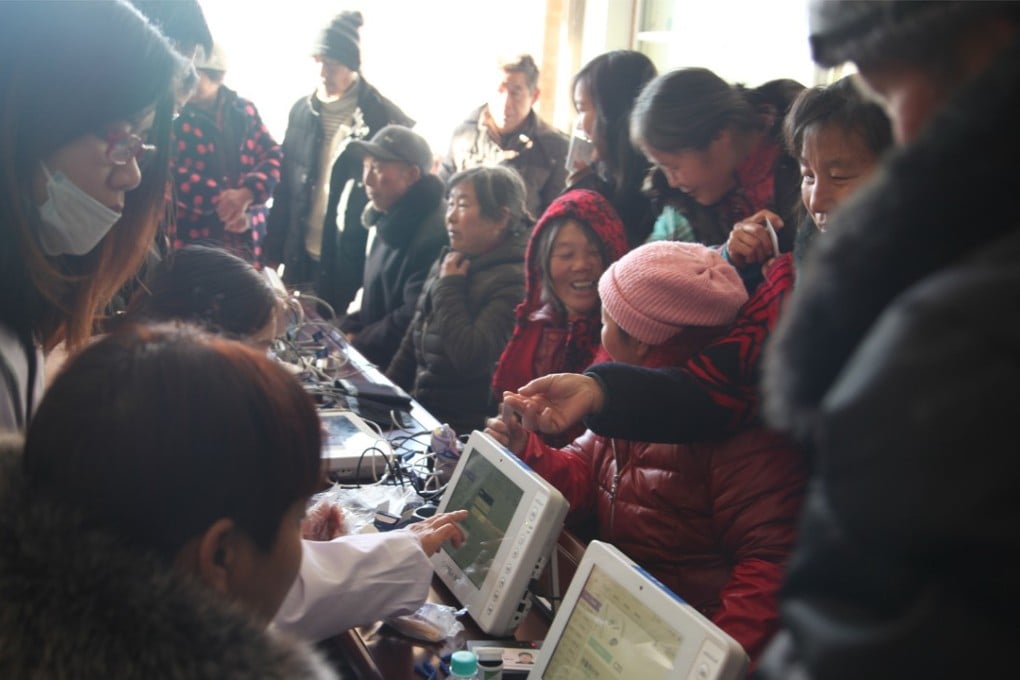A look at how China is using technology to improve rural access to quality health care
Internet technology is helping reduce the need for rural residents to travel long distances to big cities to have their routine tests done

For Sui Xiuchen, suffering from chronic illnesses is both expensive and time-consuming, as it would take the 66-year-old an entire day to visit the nearest county hospital from his home in Liuwa village, Henan province, to undergo medical tests.
Diagnosed with coronary heart disease along with diabetes and hypertension, Sui was amazed to find out in January that he can have his electrocardiographs and blood tests done at the clinic in his own village, a rural backwater more than 110 kilometres (68 miles) away from the capital city of Henan, and have them reviewed by doctors at big-city hospitals.
“Before, I had to spend the whole day on the commute and queuing, sometimes even staying overnight if I couldn’t make it back,” Sui said. “The bus fare alone costs dozens of yuan. Now, there’s no need for the trip. I can video-chat with outside experts on questions that our local village doctor can’t answer.”
Health care in China’s rural areas is benefiting from the technology boom in the world’s most populous country. Liuwa is among 349 villages in Henan province that have received mobile all-in-one diagnostic stations since the start of the year. These devices can run 11 tests, from measuring blood pressure and electrical activity of the heart, to the more routine urine and blood analysis. The results are uploaded automatically to a data system for further online consultation.
Weighing 5 kilograms (11 pounds), the device designed by internet health care start-up WeDoctor is portable. The rural health care programme is part of cooperation between the Tencent-backed company and government authorities.